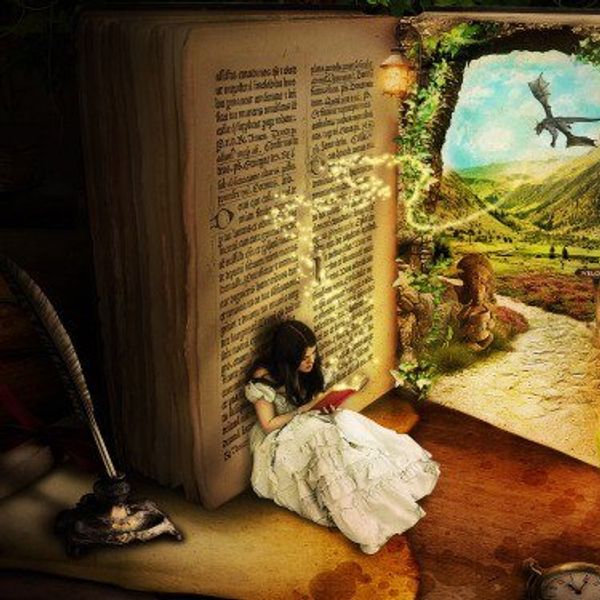“Come with me and you’ll be in a world of pure imagination…” sang Gene Wilder in a classic song for a timeless film, Willy Wonka and the Chocolate Factory. Imagination is a prized trait for any child, as their creativity and sharp minds come up with ideas and worlds seemingly banned to adults. I can’t be the only one who played “house” as a kid. Somehow, though, it seems that society puts a taboo on imagination for older kids and for adults. In my English class a few days ago, we had a discussion about fiction and nonfiction and about imagination. My professor passed around a book that served as an anthology for every fictional literary world one can imagine, from Narnia to Never-Neverland. When I touched that book, I couldn’t help but smile, especially as I looked over the map of Narnia (I must say, I was a little disappointed when my friend pointed out that the book had mistakenly written Hogwarts’ location as England, when it is actually in Scotland.) It’s not just that book though: all books make me smile, and make my heart yearn for whatever adventures are written in their pages. Our discussion continued, and even now, several days afterwards, I am still thinking about several points of the discussion. The one I will focus on, however, is the idea that imagination is not important.
While that was not directly stated in our discussion, nor exactly what the discussion was about, I have found, after a lot of thought, that people don’t put stark in imagination. After all, so many people are keen to say that artists and writers are fueled by drugs. Of course, many creative individuals have tried drugs or alcohol, but I find it almost insulting that people don’t believe a person, in her/his/their own right mind, can be creative. Furthermore, in the mental health world, professionals often, as I have witnessed first-hand, mistake imagination for hallucinations or another condition. Yes, many people do have hallucinations or delusions, but there is a difference between a person thinking of fictional ideas and knowing that they are fiction, and a person believing that fictional ideas are actually present in the real world. Even if neither of the aforementioned scenarios occurs in a person’s life, creativity is still pushed to the side by the idea that writers have creativity that mathematicians or scientists do not.
I started my college career as a physics major, and though I have switched majors (and colleges), I will never let my passion for investigating the universe die. Often, when I tell people that I changed from physics to philosophy, or that my two greatest passions are astrophysics and writing, they remark at how different those fields are. But that is not completely true, for astrophysics takes a certain dose of imagination and creativity. How can one begin to understand or speculate about objects billions of light-years from Earth without an imagination? Radio telescopes can detect distant galaxies and quasars, some from within a billion years of the Big Bang, but the data from such telescopes must then be interpreted by scientists. Depictions of such far away galaxies are only available by artistic design, informed by the data collected from radio technology and a physicist’s interpretation of that data.
Imagination is just as important to the real-world as it is to fiction and writing, and it is absolutely possible to appreciate the extraordinary real-world while also loving fantasy worlds. I, for one, will never stop loving the worlds of books, and I will never stop loving the actual world. In fact, the books I read make me appreciate the real world even more than I already would, as they show me how to find the ‘magic’ that surrounds me in daily life. Let's stop belittling imagination and creativity, for they are as important as logic and observable facts to the advancement of society and the betterment of the human soul.
Reference:
Willy Wonka & the Chocolate Factory. Dir. Mel Stuart. Perf. Gene Wilder, Jack Albertson, and Peter Ostrum. Warner Bros., 1971. Videocassette. Originally distributed by Paramount Pictures, but the rights were transferred to Warner Bros. in the 1980's.




















